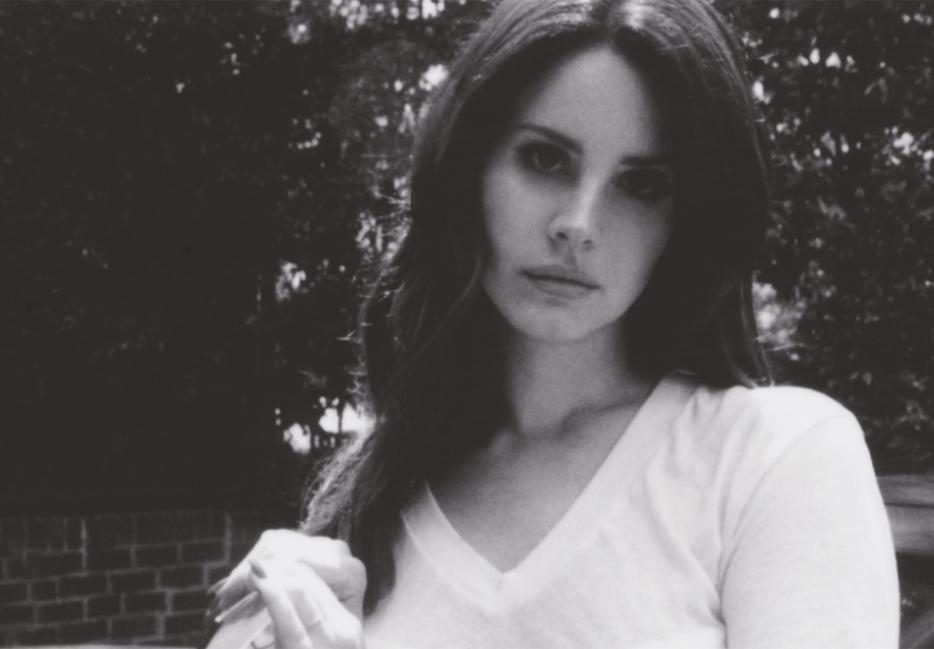Unless her release party involves euthanizing the Queen’s Corgis, it’s safe to say that Lana Del Rey’s follow-up to Born to Die will not manage to generate the nattering controversy of that record. Ultraviolence certainly has a lot of repugnance soaked into its lush beauty, but by now at least we’ve come to expect that from Del Rey; last time, it was precisely because she wasn’t what we expected that made her everyone’s favourite target for at least two glorious weeks, maybe a month.
Why a stage name and a murky backstory should have caused such a stir is slightly confusing, particularly if we accept that one of pop’s hallmarks as a genre is a concern with its packaging. Still, to many it had the whiff of a bait and switch, a pretty young thing dressed in the tropes of indie culture—a retro fetish, an ostensible DIY aesthetic, a practiced indifference—championed by blogs and the right Twitterers and Pitchfork, for god’s sake, who turned out to be generously supported by both a major label and a rich dad. It’s probably a mark of the times that the latter seemed somehow more damning, as if trust-fundery isn’t at least partially inherent to a culture that lionizes urban core scenes in the age of revitalization.
Probably she was just the right person for the right moment, indie no less prone to whining about authenticity than every other notable subculture of the past 60 years. (More, even, given how porous the gates of identity have gotten: it’s not like you even had to set foot in Brooklyn to know its streets and clubs and scenes this last decade.) Particularly since, a little over a year later, Lorde walked in with a pretty similar shtick and exactly none of the baggage.
They’re not perfect analogues, though they do that same breathy anthem thing—Del Rey the laid-up lounge singer to Lorde’s black lipstick clap-pop—and are both expertly groomed, and both broke through the underculture first, and both were initially sold on being somehow more you than the average pop star. But where Del Rey stopped at the YouTube videos, Lorde cracked out a downright bouncy first single about it, and an album soaked with nostalgia for a middle-of-nowhere life that was already on the other side of the planet. She was probably pretty honest about it, but that’s still a hell of a branding coup, spun up from spots on streaming services to Grammys in less than a year.
Of course, it also helps that Lorde’s persona and preoccupations are of-the-moment in a way Del Rey’s aren’t quite. Part of the bait and switch with the latter was that “Video Games,” which still seems so perfect in isolation, seemed to herald a reasonably fresh kind of public woman; the desperation of it all turned out to be Del Rey’s real subject, but there it was tempered with a certain bitter dryness about how epically stupid this lug was. She was a come-hither kitten who was conflicted about it, using sexuality but not entirely comfortable about it, wondering at the point of it when it just leaves her pouting and powerless. Del Rey has not managed to get that much depth into her doomed romantics since, and instead just seems to be trying to live the Marilyn Monroe doctrine, playing with the doom and sexuality of these ‘50s and ‘60s symbols with none of the benefits of hindsight.
In contrast, Lorde really is or is playing with something kind of fresh, the Hooray for the Weird Girls brand of posi-feminism that dovetails pretty nicely with the Rookie set. “Royals” has problems with racialized imagery that are not light years away from Del Rey’s odd notion of womanhood, but the rest of Pure Heroine is so cloaked in a message of “let’s just be ourselves” that it basically gets a pass. Lorde is hitting a wave of awakening, of team-building; Del Rey is off alone in a bedroom, clinging to a world a good number of her peers want to leave behind. It might not actually be that we buy Del Rey’s authenticity any less, just that she is really something we’d rather not buy into. Or at least not buy as much of.





